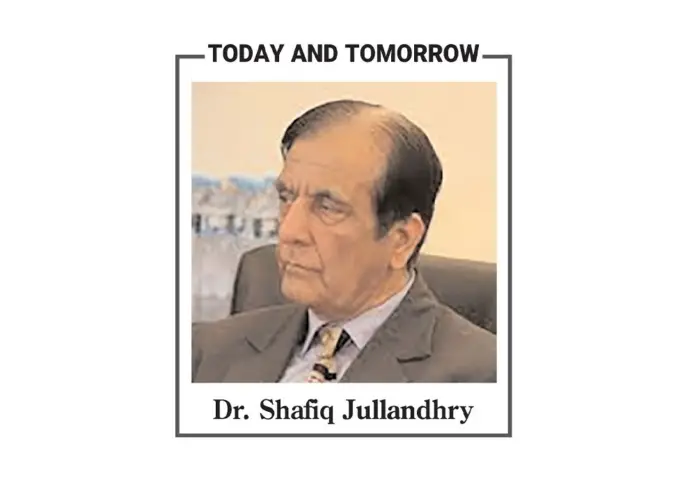This was 1971 when living in a bachelor lodge, one friend of mine asked me, one of his hands on my chest, please be very honest and tell me when you got any enormous pleasure and were happy for many days? His friendly question and style grasped me psychologically. I was prepared to recall any such event. I thought about my school days, thrashed out the college life I spent very actively and remained at the top of co-curricular activities. Then came university life, during which I worked for newspapers and ultimately got the lecturer’s job in the Journalism Department of the prestigious Punjab University. I worked very hard in all phases and got some distinctions, but there was not an ‘extraordinary’ achievement or happy occasion.
I told my friend that my life was like an average man’s life. I never found a sudden or considerable amount from any side. Nor did I do a tremendous human service like a pious man. During school days, I was getting one ana (a basic unit of a rupee) daily as pocket money. My parents offered me one rupee as Eid money only on Eid days. My friend stressed that I must recall any pleasant day of my life. Then I remembered suddenly when I was in seventh class and one of Karachi’s publishers started a monthly magazine dedicated to children and one of my early age story was published. It gave me immense pleasure, and my feet were not touching the ground. I enjoyed this pleasure for three days and continued showing this story published with my name to everyone.
My friend asked: any other fun like this. I thought again, and the answer was: when some of my storybooks for children were published, I became an author. Then my friend asked the last question: What type of future happiness are you expecting or wishing for? I replied: I am gathering facts for one of my books; for it, I have collected around one thousand references from different books and journals. I will be thrilled if it is completed and published at a minimum standard I have set for it. After this, my friend left me saying: you have got a bookish mind, that is why I find you profound most of the time. His words made me serious for at least two to three days. A big question was fixed in my mind: writing good books was my life’s mission, or are they the most pleasing things for me? I carried this question everywhere with me.
On the third day, I got its answer uniquely when I was sitting under the sun in a chair, reading a newspaper. Readers might have listened to the Urdu saying, which means entering truth in all tissues of your body, making you cold and satisfied. All of a sudden, I found myself in that position. The answer to the question hanging in my mind was provided. That was the moment when I came to know the purpose of life. I felt I have known it thoroughly, and there is no other reality more significant than the one I have learned. I didn’t talk about it to anyone and remained quite satisfied. If one asked me what did you feel? I couldn’t answer. It was a non-verbal message, and a sinful man can’t translate it into the symbols of any language. But what I could understand was that one should serve humanity with whatever means and ways one can do.
Nevertheless, I learned the Urdu saying “Kisi haqeeqat ka thandak bun-kar rag-o-raishay mein samaa jaana.” My question was mostly about my answer to my friend. I answered him at random but was not sure whether I had that type of mind or was it the only goal fixed in my life? After seven-eight years of this experience, I read a famous book – Life After Life – by Raymond Moody. He collected the information, and interviewed more than a hundred persons who were declared dead in the hospital, but after some minutes, they were alive again. Almost all of them were very happy with the experience of death and wished to die again. They said that after getting rid of this body, they came to know the real purpose of life. When asked about this purpose, they said it is tough to tell it in words, but what can they understand about the meaning of life is to live for others.
Dear readers! I cannot be a better authority for explaining such things than those who had dipped in the valley of death and came out with the first-hand knowledge. After reading impressions of these unique people, one can easily understand that it is also in the instinct of the human to live for others. Parents raise their children with love and care, and in return, the children never ignore the sacrifice and affection of their parents. In western societies, youth seldom care for their parents. But nature demands that children must be helpful to their parents in their old age. In our ailments and other odd times, when we help others, that is the best part of our lives. I want to make it clear that I had that type of experience only once in life. But there are many other occasions when I got a different experience not less interesting than this one.







